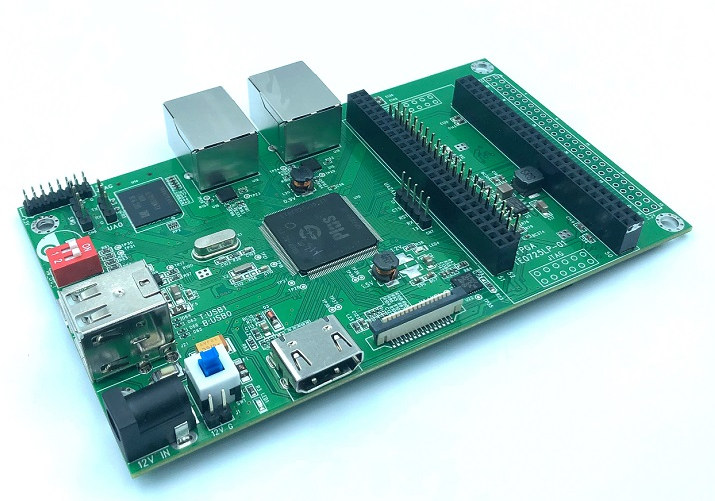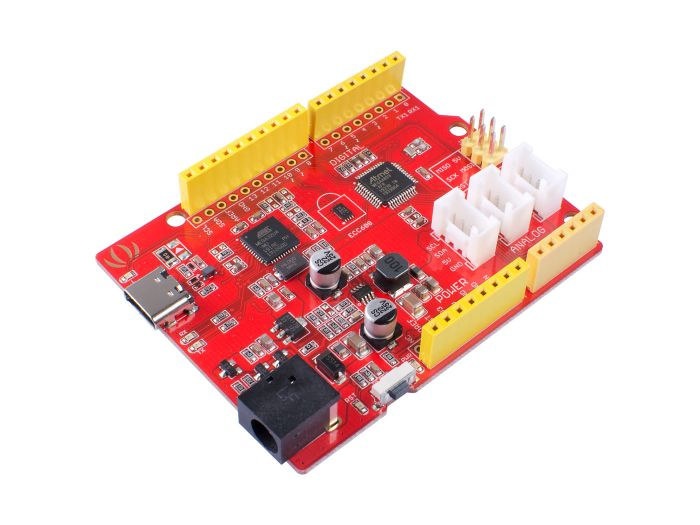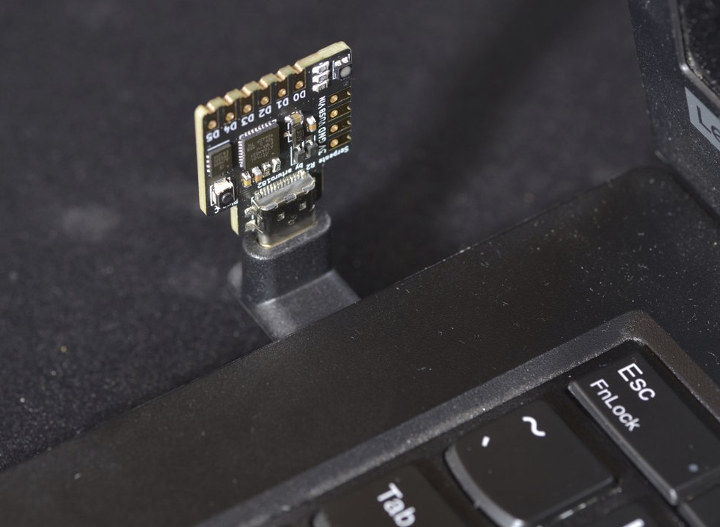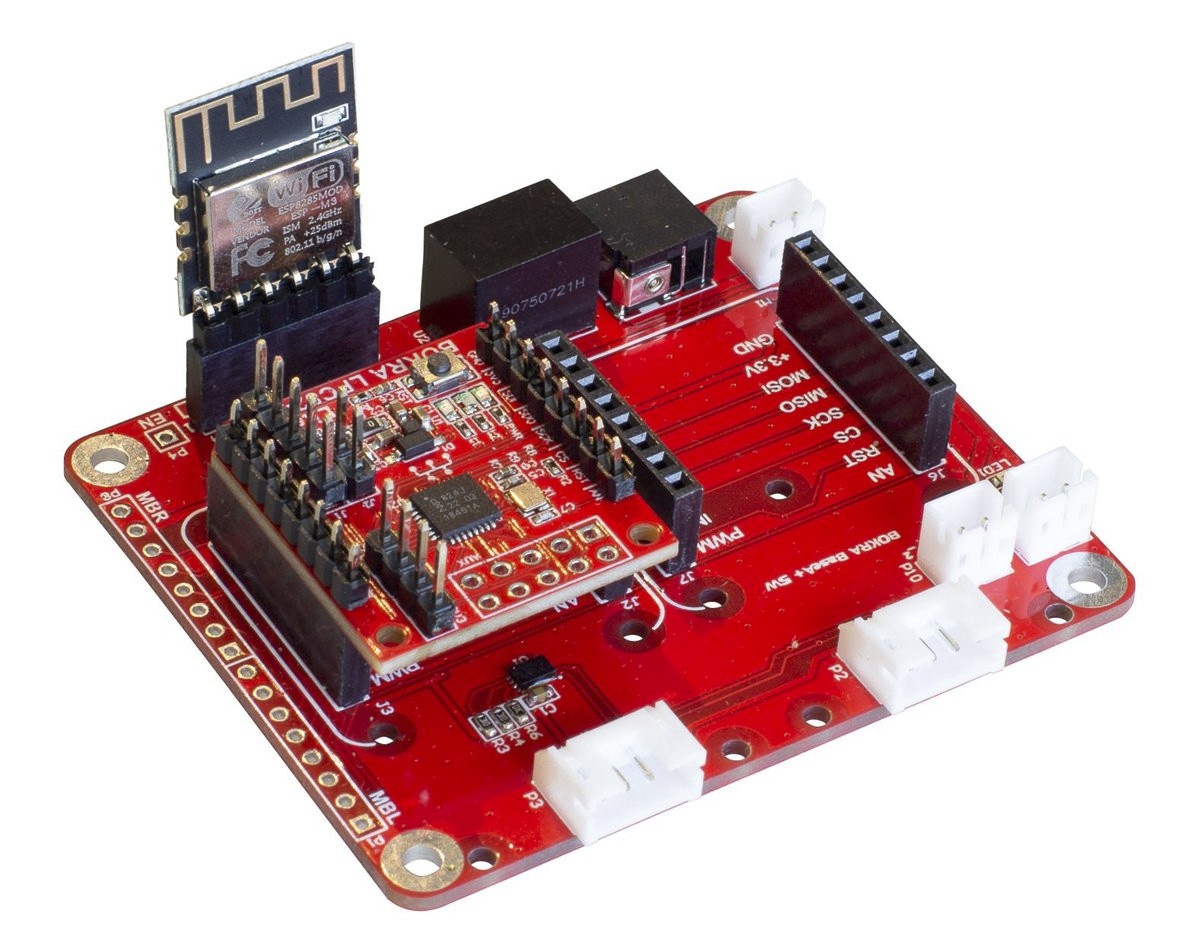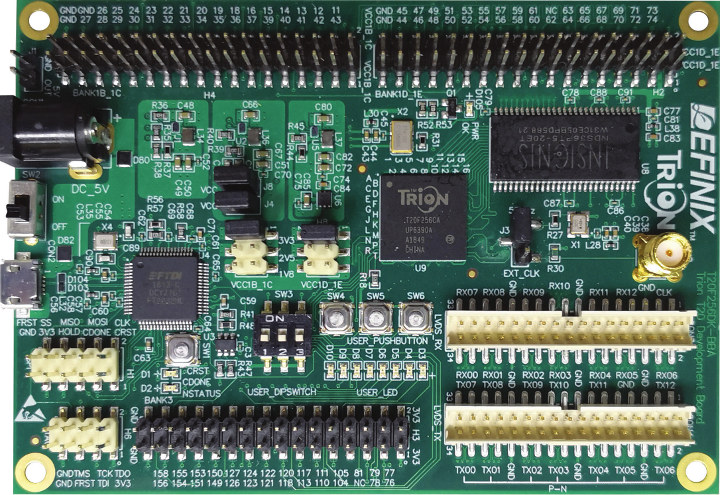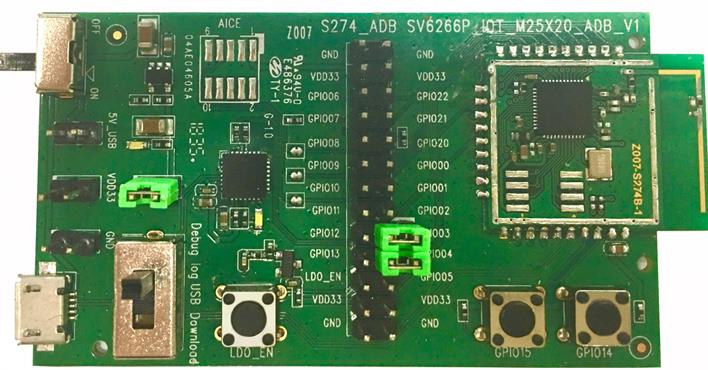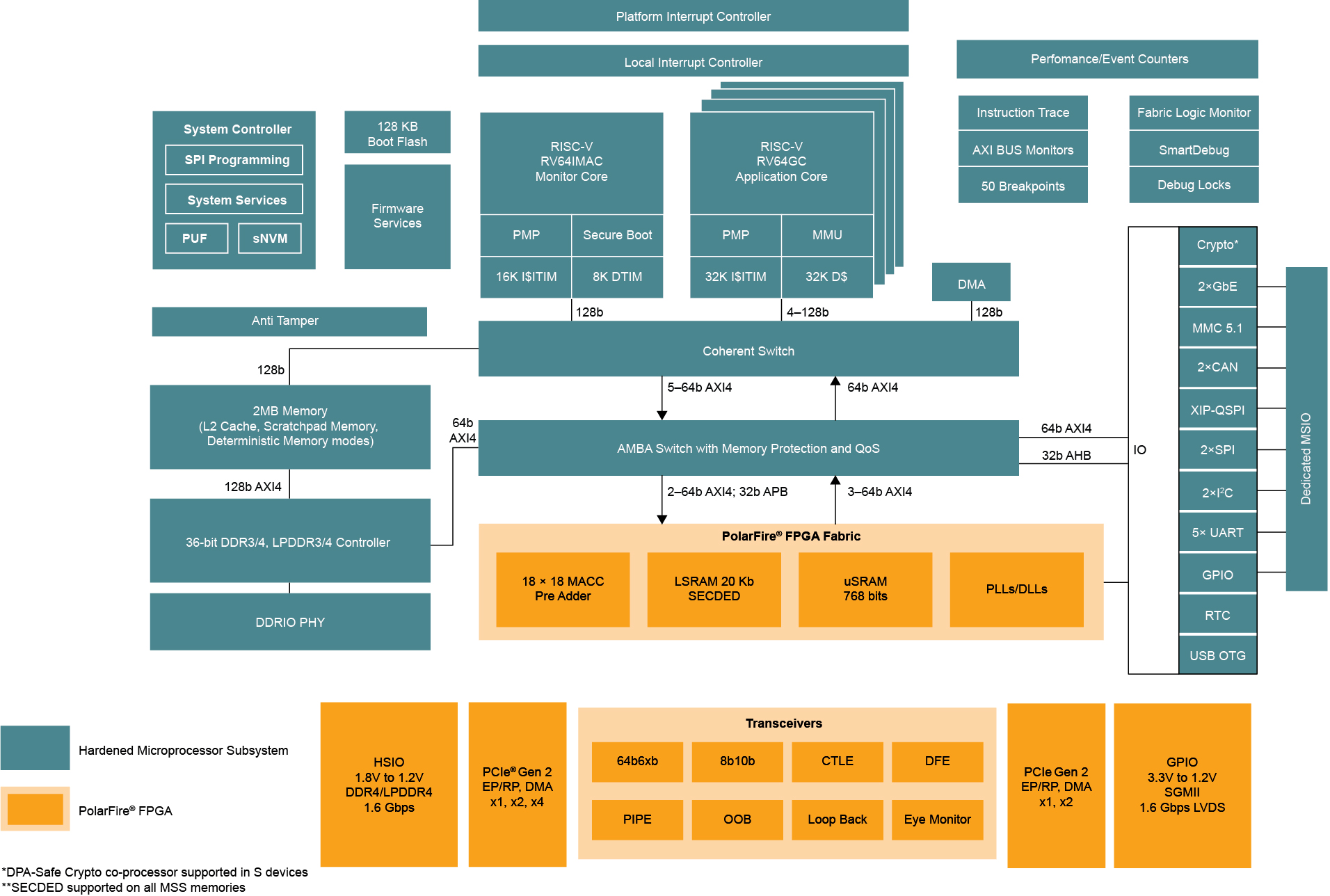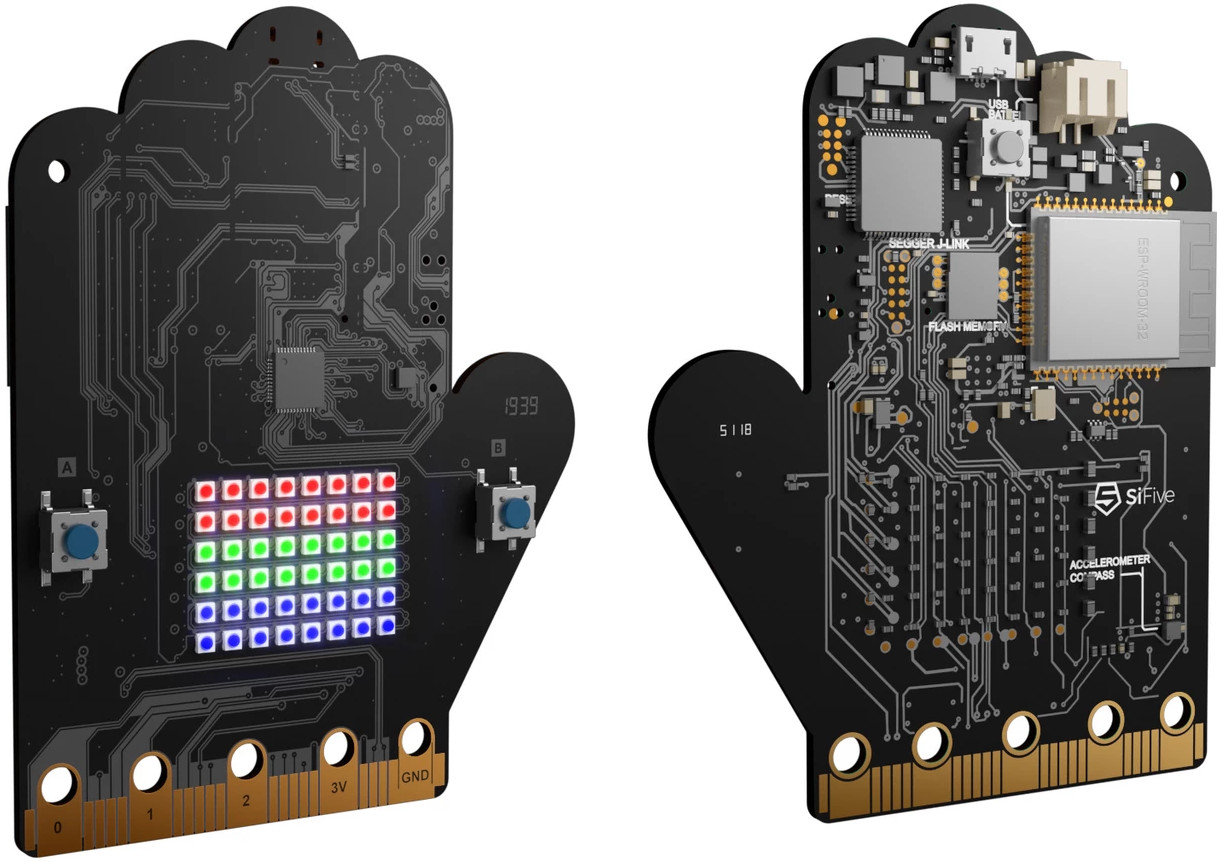Last month we covered Banana Pi BPI-F2S single board computer (SBC) for industrial, IoT, and smart audio application that was powered by the intriguing SunPlus SP7021 “Plus1” processor featuring four Cortex-A7 cores, one ARM9 ARM9 real-time core, and one 8051 I/O controller core, as well as up to 512MB built-in DDR3 RAM. At the time, the board was not available, and we had limited information about software support, except the company would provide a Yocto-based Linux distribution. The good news is that you can now buy Banana Pi BPI-F2S industrial SBC on Aliexpress for $58 and Taobao for 390 RMB, and the company released source code and OS images for the board. Here’s a reminder of Banana Pi BPI-F2S specifications: SoC – Sunplus SP7021 “Plus1” with a quad-core Cortex-A7 processor @ 1.0 GHz, one Arm A926 microprocessor, an 8051 core to handle I/Os, and 128MB or 512MB DDR3 DRAM. Storage […]
Seeeduino Crypto Board Combines Microchip ATmega4809 MCU and ECC608 Crypto Chip
With the advance of IoT, security has become critical since devices are often connected to the Internet. There are several ways to improve security and one of them is to implement hardware security via crypto chips. One of those chips is Microchip ECC608 (aka ATECC608A) secure element which we previously found in Linux based hardware such as USB Armory MK-II USB Linux computer, and the official Arduino Nano 33 IoT Board. Seeed Studio has now introduced a new Arduino compatible board with Microchip ECC608 crypto chip: Seeeduino Crypto board powered by a Microchip ATmega4809 8-bit AVR MCU. Seeeduino Crypto specifications: MCU – Microchip ATMEGA4809-AFR 8-bit AVR microcontroller @ 16 MHz with 48KB flash, 6,144 Bytes RAM USB – 1x USB Type-C port Expansion Arduino Uno headers with 6x analog inputs, 14x digital I/O pins, 5x PWM 2x I2C Grove headers 1x UART Grove header HW Security – Microchip ECC608 secure […]
Serpente R2 Microchip SAMD21 Board Features a Male USB Type-C Port
Development boards with a USB Type-C port for power and programming are becoming more common, most in most cases with a female USB-C port. Designed by arturo182, Serpente R2 CircuitPython prototyping board based on Microchip SAMD21 Arm Cortex-M0+ microcontroller offers three USB power & programming option with USB type-A male, USB type-C female, or USB type-C male, with the latter option allowing you to plug into directly into your host computer. Serpente R2 board specifications: MCU – Microchip ATSAMD21E18A 32-bit Cortex-M0+ running at 48MHz, with 256KB flash, and 32KB RAM Storage – 4MB SPI Flash for storing files and CircuitPython code Expansion – 10x I/Os with castellated holes including 6x customizable GPIOs, and 4x power signals (3V, GND, VUSB, and VIN) USB R2 – Female USB Type-C port R2 Plug – Male USB Type-A port R2 Plug C – Male USB Type-C port Misc – User RGB LED, reset button […]
BOKRA NXP LPC824 and Nordic nRF52832 powered MCU Modules Follow MikroBUS Form Factor
We first wrote about MikroElectronika MikroBUS socket in 2015 while covering an SBC which featured one MikroBUS socket supporting one of the 150 Click boards available at the time. There are now over 700 Click boards to choose from, with the tiny modules offering motor drivers, buttons, short-range connectivity, UART and other interfaces, as well as various sensors. But BOKRA had another idea: developing MCU based systems-on-module following MikroBUS form factor. BOKRA LPC824 Lite module The first of those modules is BOKRA LPC824 Lite with the following specifications: MCU – NXP LPC824M201JHI33 Arm Cortex-M0+ microcontroller @ 30 MHz with 32KB Flash Memory, 8 KB RAM I/O MikroBUS headers with SPI, I2C, UART, PWM, GPIOs 10-pin “Serial” header 4-pin I2C Grove connector for Seeed Studio I2C Grove modules Debugging interface – SWD Misc – Reset button, power LED, 2x user LEDs Power Supply – 5V/500mA via MIC5528 regulator Dimensions – 28.6 […]
Trion T20 BGA256 FPGA Development Kit Supports “PulseRain Reindeer” RISC-V RV32IM soft CPU
A few months ago I wrote about FireAnt low-cost FPGA development board powered by Efinix Trion T8 FPGA, and it was the first time I personally heard about the company. Trion FPGA family range from the T4 with 3,888 logic elements up to the Trion T200 with 192,000 LE’s. A board more powerful than FireAnt, but not quite high-end, recently showed up on Digikey with Trion T20 BGA256 development kit going for $150. Trion T20 BGA256 Development Kit specifications: FPGA – Efinix Trion T20 FPGA with 19,728 LE’s, 1,044 Kbit embedded RAM, 36 18×18 multipliers, 7 PPL’s, up to 220 GPIO’s; 256-ball FBGA (13×13 mm) System Memory – 256 Mbit SDR SDRAM Storage – NOR flash USB – 1x Micro-USB port for programming Debug / Configuration – SPI and JTAG headers to facilitate configuration Expansion 3x I/O headers to connect to external devices LVDS TX header, LVDS RX & clock […]
iCommSemi SV6166F is a Low-Power WiFi SoC for IoT and Embedded Systems
The other day I wrote about Sonoff Micro WiFi USB Smart adapter featuring a CKW04 WiFi chip, but one person suspected it may be based on iCommSemi SV6166F chip with very similar features and the same 6x6mm form factor. It’s still unclear whether that’s the chip used in Sonoff Micro, but AFAICR I never heard about iCommSemi previously, so let’s have a look at SV6166F in particular. The SV6166F is a low-power single-chip device designed for integration into the Internet of Thing and embedded systems with support for 802.11b/g/n WiFi at 2.4 GHz. SV6166F highlights: MCU – Andes Technology N10 processor with ILM/DLM and I-cache. Memory & Storage 128K ROM and 192 KB SRAM for Instruction and data SRAM in total 8K retention SRAM 2MB (16 Mbit) SPI flash in package Flash and PSRAM controller up to 16MB/64Mb with XIP WiFi Connectivity 802.11b, 11g, and 802.11n 1T1R AP/STA mode – […]
RISC-V based PolarFire SoC FPGA and Devkit Coming in Q3 2020
Microsemi unveiled PolarFire FPGA + RISC-V SoC about one year ago, but at the time, development was done on a $3,000 platform with SiFive U54 powered HiFive Unleashed board combined with an FPGA add-on board from Microsemi. I’ve now been informed that Microchip has announced its Linux-capable PolarFire FPGA+RISC-V SoC would start shipping in Q3 2020 at the RISC-V summit and that a development kit will be sold for a few hundred dollars. PolarFire SoC FPGA PolarFire SoC FPGA key features and specifications: Mid-Range FPGA optimized for Low Power High-speed serial connectivity with built-in multi-gigabit/multi-protocol transceivers from 250 Mbps to 12.7 Gbps Up to 461k logic elements consisting of a 4-input Look-Up Table (LUT) with a fracture-able D-type flip-flop Up to 31.6 Mb of RAM Power optimized transceivers Up to 1420 18 × 18 multiply-accumulate blocks with hardened pre-adders Integrated dual PCIe for up to ×4 Gen 2 Endpoint […]
SiFive Learn Inventor is a Wireless RISC-V Development Kit Inspired by BBC Micro:bit
SiFive Learn Inventor is a RISC-V educational board partially inspired by BBC Micro:bit board with the same crocodile clip-friendly edge connector, and an LED matrix. The board is also fully qualified to work with the Amazon FreeRTOS real-time operating system. Shaped in the form of a hand, the board features SiFive FE310 RISC-V processor found in the SiFive HiFive1 board, as well as ESP-WROOM-32 WiFi + Bluetooth module. SiFive Learn Inventor specifications: SoC – SiFive FE310-G003 32-bit RISC-V (RV32IMAFC) processor @ 150 MHz with 64KB of internal SRAM Storage – 512 KB flash “Display” – 6×8 “widescreen” array of RGB LEDs with 262,000 colors each; LEDs can expand off-board onto external arrays via the edge connector Wireless Connectivity – 802.11b/g/n WiFi 4 (2.4GHz) and Bluetooth 4.2 LE via an ESP32 module (ESP-WROOM-32) USB – 1x Micro USB port for power and programming/debugging Expansion A/D Converters (four) accessed via on-board coprocessor […]


